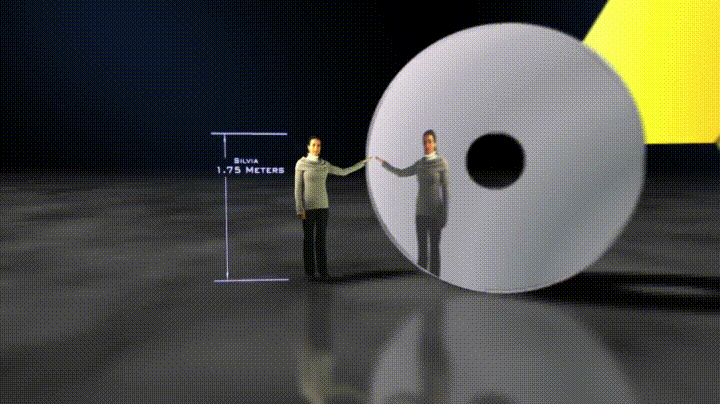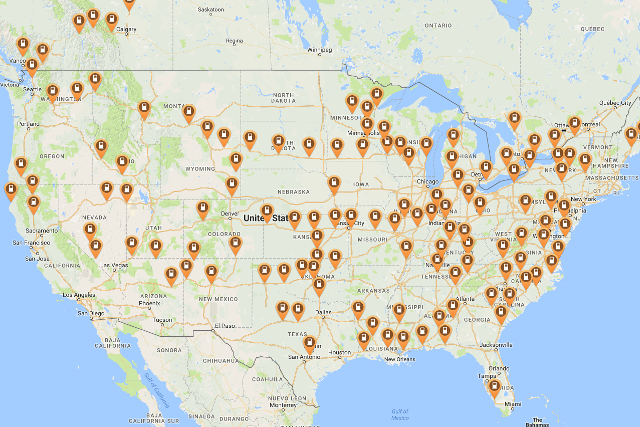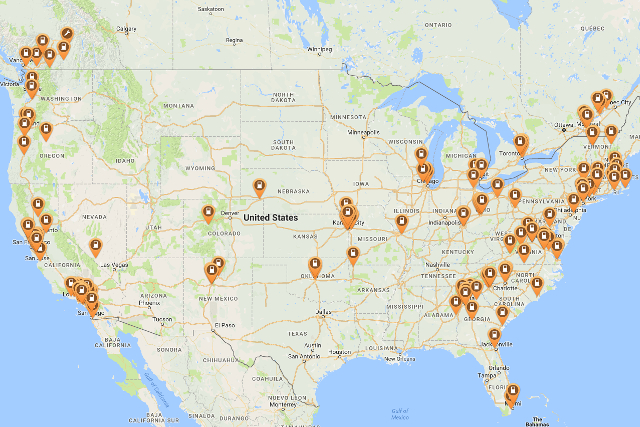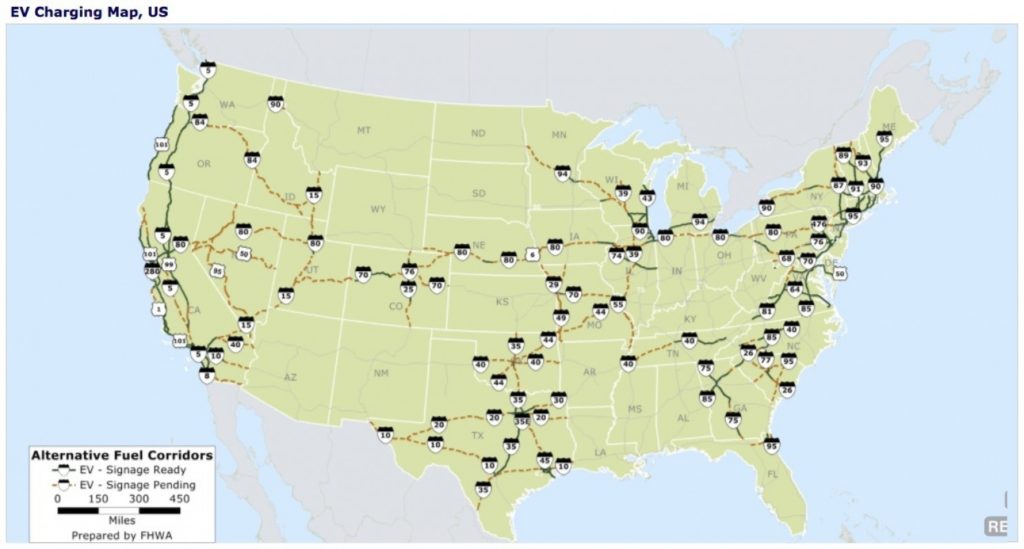The James Webb Space Telescope (this one’s a model) | Photo: NASA / Chris Gunn
This week brings us stories about the James Webb Space Telescope, the coming electric vehicle future in America, and the beginning of a trial period for some DMCA exemptions that’ll let you (among other things) hack your tractor. If you have one. Check it out, it’s the Weekly Roundup for 6 November 2016!
Testing the JWST
NASA announced this week that it has completed the construction of the James Webb Space Telescope, which will eventually be the largest ever optical telescope in space. If all goes to plan and it makes it to its home at L2 safe and sound, its 18 mirrors will together produce some of the finest measurements of the infrared and near-infrared spectrum ever, allowing it to see some of the furthest and dimmest objects in the universe. The announcement this week marks the end of the long construction phase and the beginning of the testing and calibration phase, which will first feature a “center of curvature” test designed to make sure the incredibly precise mirrors are all properly aligned. According to one official, the testing equipment is so precise that they’ll be able to detect “the vibrations of the mirrors due to people talking in the room.” Assuming the testing all goes to plan, the JWST will launch aboard an Arianne V rocket in October 2018. Below is a comparison of the mirror sizes, and you can read more about the testing over at Phys.Org.

The EV Future Pushes Ahead
There are two pieces of great news about electric vehicles this week, as GM announced it had begun construction of its Chevy Bolt, and President Barack Obama made “range anxiety” a little less, well, anxious. The Bolt, General Motors’ 200-miles-on-a-single-charge answer to Tesla’s forthcoming Model 3, has been hailed as the competition Elon Musk’s company was designed to start. I’ve written about the Bolt before, basically saying that it might not be quite the “Tesla-killer” it’s being hailed as, but either way it’s going to be great to see the affordable electric vehicle industry finally start up in earnest. Meanwhile the White House has green-lit a new plan to develop “electric vehicle charging corridors” that run across the country. The program takes 48 US Interstate highways and adds to them signage announcing (as we do with gas) where the next charging station is, and will eventually see those corridors having charging stations every fifty miles or fewer. If you examine the map and compare it with the two maps of existing charging stations for Tesla and GM, you’ll see that a lot of work has already gone into those corridors, but either way it’s a nice way to publicize the work that’s been done and to push it to the next level. The Washington Post has more.



![Hack your tractor | Photo: Michel Curi, CC BY 2.0 [text added]](http://www.thisweekintomorrow.com/wp-content/uploads/2016/11/hack-your-tractor-1024x683.jpg)
DMCA Exemptions
This time last year, the Electronic Frontier Foundation grabbed a win in the fight against the overbearing copyright and intellectual “property” law known as the Digital Millennium Copyright Act, or DMCA, gaining new exemptions to the law’s prohibition on “circumvention” of digital “copyright protection” measures. This week, those exemptions went into effect, meaning companies can no longer sue you for trying to change, reverse-engineer, or otherwise repair the software on your car, your tractor, and many other computer-enabled devices. As Wired reports, this former ban had led to situations like Sony suing George Hotz for figuring out how to play non-Playstation software on a Playstation, and John Deere arguing that people who owned its tractors weren’t allowed to tweak or repair them themselves. For the next two years of the trial period, you can now “hack” basically most things you own without fear of reprisal, and in a couple of years the Librarian of Congress will take another look and see what she thinks. In the meantime, I expect great things from you, net-dwellers. Wired has more on the story.
ICYMI
This week was an interesting one here at This Week In Tomorrow, with a much under-subscribed three-part series mid-week and a very-well-read Feminist Friday piece by yours truly:
- Monday: “Unintentional Truth: The Earth Will Indeed Experience 15 Days Of Darkness In November“
- Tuesday: “The Anatomy Of A Conspiracy Theory Part 1: The Paradoxical Conspirator“
- Wednesday: “The Anatomy Of A Conspiracy Theory Part 2: Absence Of Evidence As Proof“
- Thursday: “The Anatomy Of A Conspiracy Theory Part 3: The Island of Self-Reliance“
- Friday: “That Male Contraception Story Was Bad Science Reporting At Its Worst“
If you missed any of them, take a minute and check them out!
Best of the Rest
And of course there’s always more to get to than anyone can, so here’s your weekly linkspam:
- Facebook made out like a bandit in quarter 3 of 2016
- Curiosity found a cool rock on Mars (and shot it with a laser)
- Microsoft announced its own Ethereum-based blockchain product
- Juno’s taking long orbits at Jupiter
- China launched a pretty darn powerful rocket, and
- Somebody put Alexa into a “Billy Bass” talking fish robot (really)
***
Thanks for reading! Except for the very *very* occasional tip (we take Venmo now!), I only get paid in my own (and your) enthusiasm, so please like This Week In Tomorrow on Facebook, follow me on Twitter @TWITomorrow, and tell your friends about the site!
If you like our posts and want to support our site, please share it with others, on Facebook, Twitter, Reddit — anywhere you think people might want to read what we’ve written. If there’s something you think we’ve missed or a story you’d like to see covered, drop us a line! Thanks so much for reading, and have a great week.
***
Richard Ford Burley is a human, writer, and doctoral candidate at Boston College, as well as an editor at Ledger, the first academic journal devoted to Bitcoin and other cryptocurrencies. In his spare time he writes about science, skepticism, feminism, and futurism here at This Week In Tomorrow.

